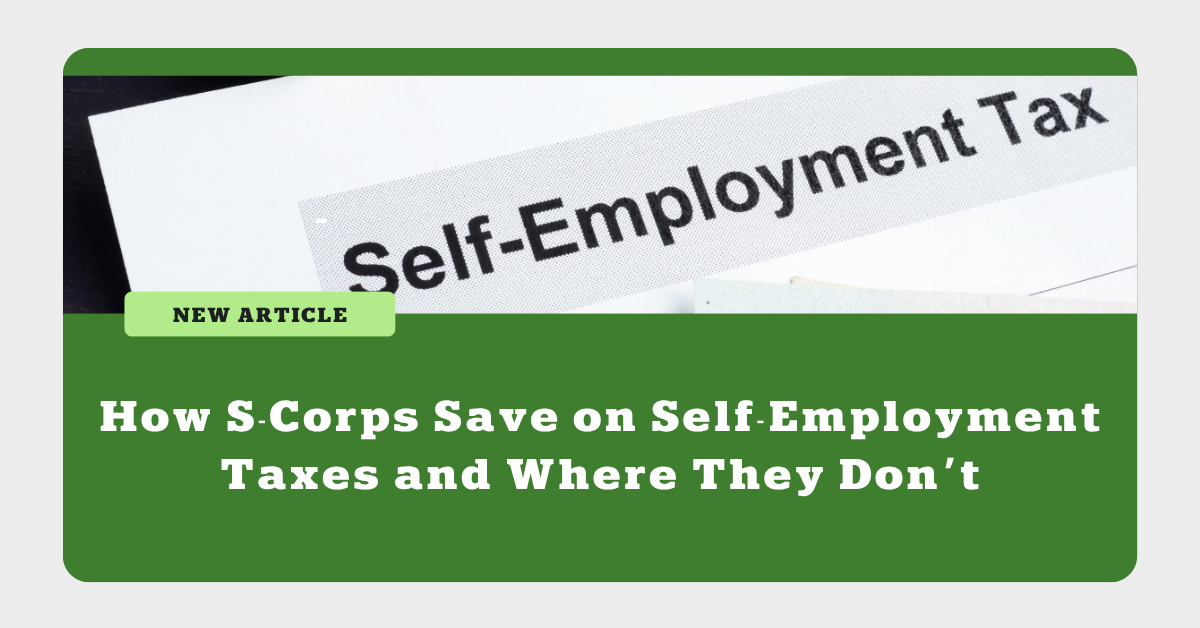
One of the biggest reasons Fort Worth business owners consider electing S-Corp status is the potential savings on self-employment taxes. If you’ve ever felt frustrated watching a huge chunk of your profits disappear into Social Security and Medicare, you’re not alone. The S-Corp election is designed to help reduce that burden.
But here’s the catch: while S-Corps can definitely save you money, the savings aren’t unlimited. There are clear rules about how it works, and situations where it doesn’t.
Let’s break it down.
When you operate as a sole proprietor or an LLC, all of your profit is subject to self-employment tax. That’s 15.3% for Social Security and Medicare combined.
So if your Fort Worth business nets $100,000 in profit, you’ll owe about $15,300 in self-employment tax on top of your regular federal income taxes.
This is where the S-Corp election changes the math.
With an S-Corp, you must pay yourself a reasonable salary through payroll. That salary is subject to payroll taxes (which cover Social Security and Medicare).
But here’s the key: any leftover profit you take out as a distribution is not subject to payroll tax. You’ll still pay regular federal income tax, but you won’t pay the 15.3% self-employment tax on those dollars.
Example:
Imagine your Fort Worth consulting firm nets $120,000 in profit. As an S-Corp, you decide to pay yourself a reasonable salary of $70,000. That $70,000 is subject to payroll taxes.
The remaining $50,000? You can take that as a distribution. You’ll pay federal income tax, but no additional self-employment tax. That single decision saves you over $7,500 in payroll taxes.
S-Corps aren’t a magic loophole. There are limits to how much you can save.
Since Texas doesn’t have a state income tax, the self-employment tax savings from an S-Corp are purely federal. That makes the election especially attractive for Fort Worth business owners with strong profits. Unlike states with high income taxes, you don’t have to worry about offsetting those state rules.
S-Corp savings are most impactful when:
S-Corps can put thousands of dollars back in your pocket every year by reducing self-employment taxes. But the savings only come when you follow the rules. Salary must be reasonable, payroll must be handled properly, and profits need to be high enough to outweigh the added costs.
For Fort Worth business owners consistently earning into the six figures, the S-Corp election can be one of the smartest tax strategies available.
For those still building, it may be worth waiting until the timing is right.